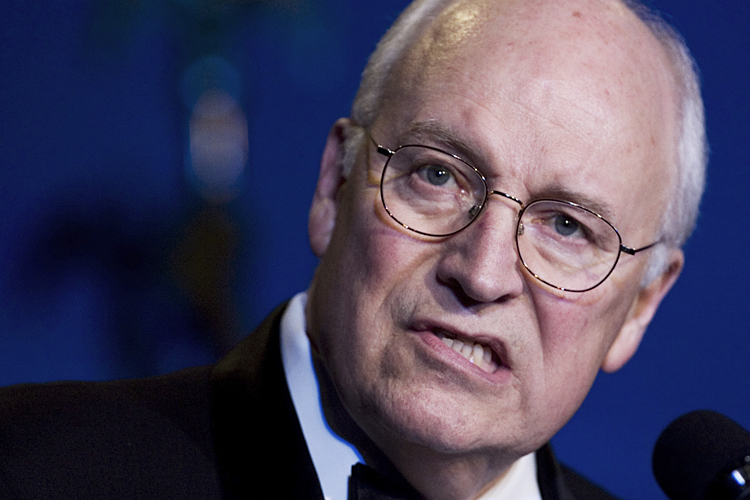We’re about a week into Dick Cheney’s media offensive to celebrate the launch of his new 501(c)(4), the Alliance for a Strong America. And it still doesn’t appear that our terse former vice president has any clue how much of an ask he’s making of the public.
Cheney has been taking the risk-averse strategy of only speaking to friendly media outlets, and sometimes even they don’t turn out to be all that friendly. That Megyn Kelly can be a real wild card.
Most recently, Cheney spoke to perhaps the one “journalist” from whom there is a 0 percent chance of receiving a question that is in any way challenging: the Washington Post’s Jennifer Rubin. Rubin has earned her way onto Salon’s Hack List a couple of times, but I’ve long thought of her as our first truly post-hack pundit: You know she’s a hack, she knows she’s a hack, she knows you know that she’s a hack, and so she plays up her hackiness as central to her Personal Brand.
Cheney granted a TWO-PART EXCLUSIVE INTERVIEW (MUST CREDIT THE “RIGHT TURN” BLOG) to Rubin. She doesn’t transcribe it as a straightforward Q&A, but her write-up nevertheless consists of her bringing up a topic and then quoting Cheney at length, before moving on to the next item of business. About the toughest she presses him: “I asked him if he had a reaction when former President Bush’s poll numbers crossed with Obama’s.”
On the other hand, it doesn’t take a very difficult interviewer to elicit completely detached madness from Cheney. What do he and his brand-new “social welfare” outlet want? Cheney’s “deeply, deeply concerned about the damage that’s being done to the U.S. from the nation’s standpoint and from the standpoint of our ability to be able to influence events in key parts of the world.” He wants the United States to be more active in the world. No, that doesn’t mean a more active State Department — he doesn’t like those pansies. He means more active militarily. He seems to think that all the Alliance for a Strong America needs to do is throw up a few television commercials and the American people will come back to their senses.
And when they do come back to their senses, what they’ll want is a return to Bush/Cheney-style two-war-ism:
As for what we do next, he said, “I start from the proposition it is not just about Iraq. We need to reverse Obama policy on defense, dramatically rebuild our armed forces. For years, we had a policy that our military had to be able to fight two wars. He reversed that. We need to go back to it.”
Ehh, no we don’t. Maybe the country wouldn’t mind a policy of having our military being able to fight two wars, but it doesn’t want the country to be fighting two wars — unless there really are foreign armies loading the decks of naval ships en route to the Atlantic and Pacific coasts. Parking in the hills of Afghanistan for 13 years and invading a contained Iraq over nothing don’t qualify as the sort of wars that many think we should be fighting anymore. If Cheney wants anyone to take his call seriously, he could start by conceding that that readiness was abused by the likes of him. And obviously that’s not going to happen.
“This is going to take a very long commitment,” Cheney says of the fight against Islamic extremists. “It may be like the Cold War in terms of duration. It requires presidential leadership to help the public understand why it’s necessary and to help build support.” Hawks love the Cold War. Not just because there was a big fat commie state on the map to fight against every day. But because it gave hawks an open-ended excuse to intervene wherever they thought: We have to go here and shoot everyone up, because it’s all part of our chess game with the Soviets. But non-state militias are not the Soviet Union, and we don’t need to deploy ground troops indefinitely to go after them.
There’s a real paradox with what Cheney’s trying to do here. He’s launching a nonprofit to sway American public opinion, but he’s famously disdainful of public opinion. “You do have to look at [polls] from the standpoint of building public opinion,” he begrudgingly admits to Rubin. “But I don’t think a lot about it.” Well, what is it then? Does he want to change public opinion or does he think mustering public support is a game for children? Because sharing your disdain for the public’s real concerns is a bad way to begin a pitch.

